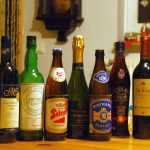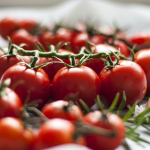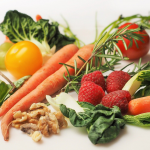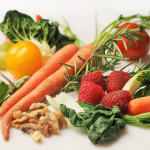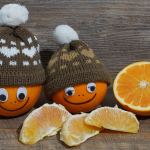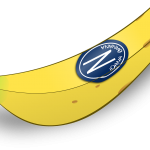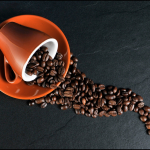Dietary guidelines must be realistic, not idealistic, in order for people to follow them.
Food & Nutrition
A consumer will often attempt to compare the taste of locally-grown organic produce with its national chain-store counterpart. This is not a fair comparison. Regarding taste, the key is not whether it's conventionally grown or organic, but when it is harvested.
“… what if a DNA test could provide you with a personalized blueprint to how food affects YOUR body? … How can you eat the best food for your body? It’s all about eating for your genes.” Can all this be true?
Is brown sugar healthier than white sugar? Is honey good for you? How about bean sprouts and lemon water? Strange menu, no?
Millions of consumers believe that organics are more nutritious than conventionally grown foods. But this defies basic plant physiology.
Nationally, according to The American Farm Bureau Federation, farm and ranch families comprise less than 2% of the U.S. population, growing and producing the food for what the other 98% need. The rest of us are free to choose other livelihoods. This results in most consumers having limited to no understanding regarding standard agricultural practices, basic plant physiology, and the global food challenge to feed over 7 billion people.
Antioxidants are one of the holy grails for marketers of a wide variety of food and supplemental products. For many, the term "antioxidant" has become synonymous through repetition with better health and the prevention of a myriad of ailments. In essence, antioxidants have been misconceived to be a magic bullet for health and longevity.
There's nothing like fear to generate abnormal behavior. And in the age of COVID-19 there's plenty of fear going around (so expect a lot of it). In the past few months, we've seen that one of these odd behaviors is attributed to a significant number of health-news headlines recommending vitamin C to purportedly assist one's immune response to COVID-19. Let's take a closer look.
Be honest. Few of us actually read nutritional labels. That said, marketing specialists have studied which labels may make a difference, and to whom. Can we use their findings to help us make other choices?
There’s a new diet that’s the talk of the town. It advocates eating more calories, not less. So is it all fad, or is there a grain of truth to it?
Dr. Mark Hyman, who pushes alternative medicine and nutrition pseudoscience, compares processed food to the Holocaust, fabricates statistics, and takes a swipe at the American Council on Science and Health. That was inadvisable.
How about a little something not COVID-19? Coffee is, far and away, one of our most popular beverages, with an estimated 400 billion cups poured annually in the U.S. Despite that figure, powered by Starbucks, McDonald's and other big brands, we aren't even in the Top 10 consuming countries. So while sipping that cup of java or mocha, let's take a look at the history of coffee.
